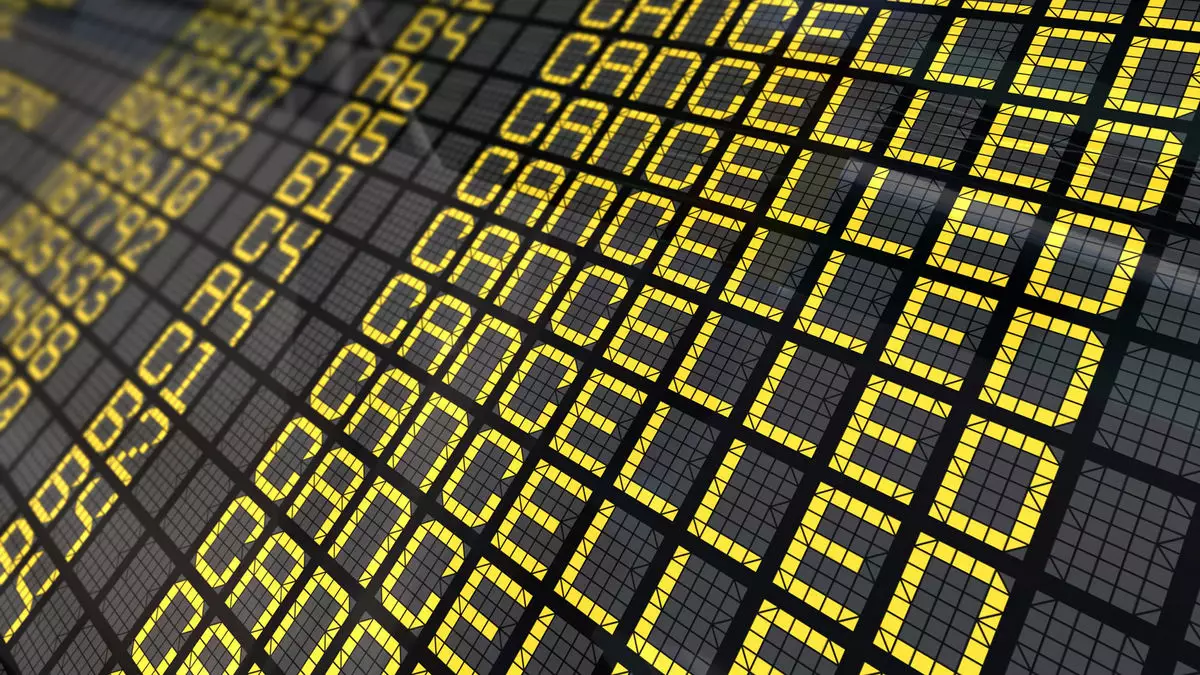The airline industry has long grappled with consumer protection policies, particularly regarding flight cancellations and delays. With the incoming Trump administration potentially overseeing a significant overhaul of the Department of Transportation (DOT)’s approach to these issues, a proposed compensation model has become the focal point of much debate. This article delves into the details surrounding this proposal, the contrasting perspectives of airlines and consumer advocates, and the implications for passengers.
On December 5, the DOT issued a regulatory notice seeking public feedback on a tiered system of compensation for airline travelers. This proposal calls for airlines to compensate passengers in the event of cancellations or delays extending beyond three hours, contingent on the airline being at fault. For delays ranging from three to six hours, compensation may start as low as $200, escalating to as much as $775 for prolonged disruptions or outright cancellations. This initiative primarily targets delays caused by operational shortcomings, excluding factors such as inclement weather.
The timing of this proposal is significant, as feedback from the public will be collected over a 60-day period, which will culminate after the administrative transition to the new Trump-led DOT. This juxtaposition raises questions about the future of this proposal, as new administrations often bring along shifts in policy and regulatory focus.
Consumer advocacy groups have largely welcomed the proposed compensation framework, viewing it as a much-needed uplift for passenger rights. David Dombroff, an aviation attorney, pointed out that while the proposal could energize negotiations surrounding air passenger rights, it may lead to a deadlock if the incoming administration does not prioritize implementation. For consumers, however, the potential for immediate relief in unfortunate travel circumstances is a compelling argument in favor of the regulation.
On the flip side, major airline associations such as Airlines for America (A4A) and the International Air Transport Association (IATA) have vehemently opposed the compensation proposal. They argue that existing consumer protections—such as automatic refunds for rebooking options and reimbursements for essential services during significant delays—already demonstrate industry accountability. They assert that imposing further cash compensation requirements would lead to increased travel costs, disproportionately impacting budget-conscious consumers and introducing operational challenges for airlines.
Comparative Analysis: European Regulation as a Precedent
The compensation proposal closely mirrors existing EU regulations, which have faced criticism from airlines but have fundamentally reshaped air travel customer service in Europe. IATA has claimed that such regulations impose a burden costing airlines over $5 billion each year. According to their estimates, these expenses inevitably trickle down to consumers, driving fares higher and limiting service options.
Contrastingly, companies like Skycop and AirHelp—dedicated to helping passengers secure compensation—contend that EU compensation requirements have fostered improvements in airline punctuality and service quality. Studies indicate that European flights comply with compensation laws are approximately 5% more likely to arrive on time compared to non-European airlines. Proponents argue that such regulations not only enhance passenger experience but serve as crucial incentives for airlines to maintain efficient operations.
As the incoming Trump administration prepares to take office, the sustainability of the DOT’s proposed compensation model remains uncertain. Discussions about the necessity of consumer protections often hinge on ideological beliefs regarding regulation in the airline sector. The previous administration notably took a lax stance on consumer protections, suggesting a possible reversion to pre-existing policies under Trump.
Critics, like Dombroff, suggest that the DOT might dismiss this proposal in favor of smaller regulations, and not require airlines to provide additional compensation protocols. Given the significant influence of industry lobbying and the Trump administration’s historical preferences, considerations for further regulatory measures could become increasingly muted or negated altogether.
As the conversation surrounding enhanced airline compensation unfolds, stakeholders must navigate a complex interplay of consumer rights, airline interests, and regulatory frameworks. The proposed compensation model represents a pivotal turning point in the dialogue about air travel and consumer protections, but ultimately, its fate rests in the hands of a new administration with differing priorities.
The divergence in opinions between consumer advocates and airline representatives underscores the challenge of creating a balanced regulatory environment. Should the proposed compensation model be adopted, it could signify a progressive step toward stronger consumer protections. Conversely, sua sponte reversals could stymie advancements towards fair treatment for air travelers within the U.S. aviation landscape. The outcome of this initiative is sure to influence the state of air travel for years to come, warranting diligent monitoring and engagement from all affected parties.


Leave a Reply